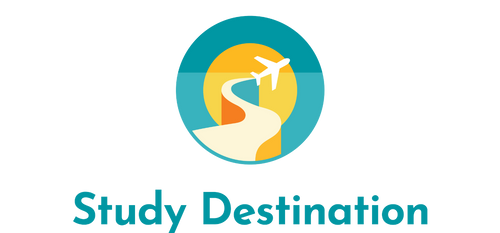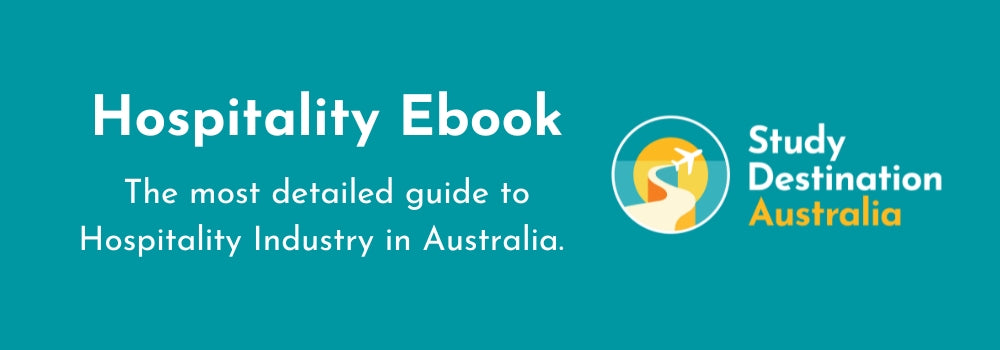Top five reasons for working in the Hospitality and Tourism Industry in Australia:
- You get a chance to make people happy
- Opportunities for travel
- High volume of diverse Jobs
- Numerous perks
- Fun and flexible!
Working in the hospitality and tourism industry can be challenging but it can also be very rewarding! It is a social industry with a very multi-cultural environment, and you will also have the knowledge and skills to work anywhere!
Whether you work in the hospitality industry for a short time or make a career out of it, you will benefit from the flexibility and gain a lot of transferable skills. Keep on reading to learn how to get a job in hospitality!
Hospitality jobs are fast paced and often involve working weekends and evenings, but this can give you flexibility to design your personal schedule!
There are many different jobs at all levels, so even if you start at an entry level position there is always room to move up as you gain more experience.
Want to learn more?
Download now our Hospitality Ebook.
The hospitality industry means:
- all types of tourist or residential accommodation including hotels, motels, serviced apartments, resorts and caravan parks
- wine saloons, wine bars and taverns
- caterers
- casinos
- nightclubs, function areas, convention facilities and restaurants
People skills such as communication, customer service, teamwork, and excellent personal presentation are an essential part of working in the industry. You also need to be able to work well under pressure and to be highly organised.
FULL TIME / PART TIME / CASUAL WORK IN HOSPITALITY INDUSTRY
Full-time employees are required to work 38 hours per week, plus any other reasonable additional (overtime) hours.
Part-time employees work fewer than 38 hours per week.
The number of hours worked per week differs from job to job and depends on what the employer and the employee have agreed upon.
NOTE: Full-time and part-time employees receive the whole suite of benefits under the Fair Work Act but have less flexibility than casuals and will need approval before requesting leave!
Casual employees are employed as needed.
A casual employee does not have guaranteed hours of work and usually work irregular hours instead of a fixed roster.
Employers have no obligation to provide casual employees with any work. As a casual employee you are legally entitled to decline a rostered shift as long as you provide sufficient notice to your employer.
NOTE: Casual employees are not entitled to paid leave.
The RSA, essential for serving alcohol:
Employment in any bar, pub, club, restaurant or café, events and retail outlet in Victoria that is licensed to serve alcohol will require you to attain Responsible Service of Alcohol (RSA)
This certificate is not valid nationally, it is only valid in the state where you take it or there is an option valid in all the country except New South Wales. It costs about $60 and takes about 4 hours to complete in person or online. It is compulsory and you have 30 days from your first day of work in the bar to get it.
Duration: From 4/5 Hours
Cost: From $60
Barista Training
In the Barista course, you are going to learn about how to make different types of coffees, effectively using coffee machines, and how to make coffee art.
Duration: 12 Hours – 2 days
Cost: From $250
How to find a job in the restaurant industry?
The best was to start looking for a part-time job is by either using online websites or referrals from friends. Many hospitality venues also advertise that they are hiring from putting up signs in their windows so hit the streets with you resume printed out ready to hand out!
You will need an Australian style resume and cover letter ready for the jobs you are going to apply for. A Resume is a document that summarises your work experience, education, skills and achievement for your employer.
Some jobs may require you to apply with a cover letter. A cover letter is a document that is sent to the employers along with a resume to provide additional information on your experience and skills.
It’s good practice to have your resume and cover letter printed out and, on your phone, so that if someone asks you to email it to the employer you can do so – there and then!
It’s important to make a good first impression when you are meeting potential employers or attending a trial shift. You should have a plain black collard shirt and/or a plain white collard shirt with plain black pants / skirt. A comfortable pair of shoes is a must! Remember, you are going to be on your feet for quite a few hours. Invest in a good pair of plain black trainers/sneakers – you will not regret it!
Although some venues may have stricter or more relaxed rules about uniform or dress policy you should always present yourself in a professional manner.
- Shirts should be clean and ironed
- Pants should be clean and without rips or designs
- Skirts should be reasonable length, no shorter than the tip of your middle finger is a good rule to follow.
- Long hair should be tied back, minimal make up, tidy beard or clean shaven etc.
Salaries and working conditions in the restaurant industry
It is important to remember that international people have the same rights at work like everyone else. FairWork Australia sets out the minimum wage in Australia. Every year on 1st July, FairWork increase the wage by certain percentage. The current minimum wage from 1st July 2022 is $21.38 per hour ($812.60 per week).
Generally, salaries vary according to the employment contract under which you are hired. Most entry-level positions in hospitality are listed as ‘casual’ positions, while some are ‘part-time’ or ‘full-time’. These are different types of employment, with different rates of pay, penalty rates, and benefits.
Good to know: Casual employees get a minimum 25% casual loading if they’re covered by the national minimum rate, which means that you should receive an additional $5.35 per hour.
When you’ve been paid
You must be paid at least once a month. In Australia, however, it is common to receive weekly or fortnightly wages.
Remember, every company – large or small – is required by law to provide you with a payslip. This can be either electronically or on paper but must be provided to you withing one day of getting paid.
In Australia, wages can be paid in cash, by check, by money order to the employee, or mostly by bank transfer. It is not illegal to get paid in Cash as long as your employer is reporting the taxes and paying your superannuation.
Good to know: If an employer wants to pay you cash and keep you “off the books” this is illegal.
Know your rights
Be aware that as an employee you should receive money for your work. You cannot be paid “in-kind” (for example with food). However, if your employer offers you benefits in-kind, this should not replace your salary. It can be an addition to your wages!
Also, note that you have to be paid a wage for the time spent:
- In training
- during team meetings
- to open and close the business
- to do trials, especially if you are asked to do several
Your employers cannot deduct money from your salary if you break something or if there is a shortage in cash registers.
Good to know: Always be wary of your work rights and check the FairWork Australia website for more details.
With the FairWork website, you can estimate the minimum wage that you should receive in your industry. For example, if you have an employment contract for a casual job, your hourly rate of pay will be increased compared to a full-time or part-time job. Your wage will be higher to compensate for the fact that your job is not fixed and that you have no holidays.
You will also receive a penalty rate (wage increase) when you work:
- On the weekend
- Public Holidays
- During overtime
- On late-night shifts
- Or, if you work early in the morning.
Useful Information
From 22 June 2021, all work within the tourism and hospitality industry in northern, remote or very remote Australia can also be counted as specified work towards eligibility for a second or third WHM visa. This option is available for WHM visa applications lodged from 5 March 2022.
Examples of eligible specified subclass 417 work in tourism or hospitality
- a chef in a restaurant
- a dive instructor
- a tour bus driver
Examples of ineligible specified subclass 417 work in tourism or hospitality
- cleaning work in a restaurant
- driving a school bus
- working as a sales assistant in a souvenir shop
Remote and very remote locations are detailed by postcode on the home affairs website.
How old do you have to be to work in hospitality?
Minimum working age depends on the state or territory where you will be working.



